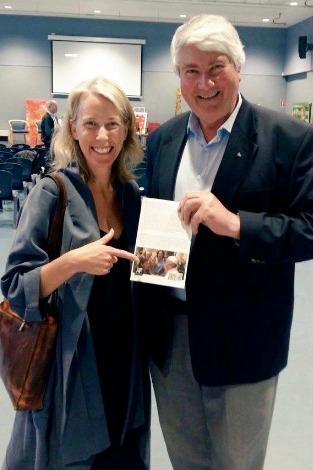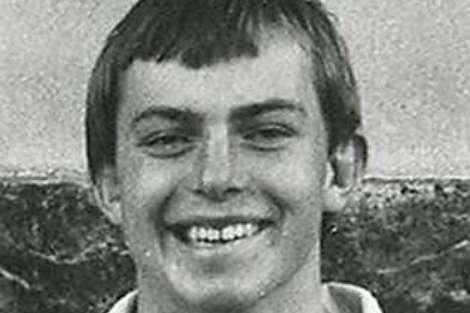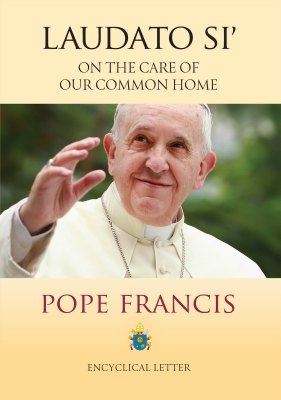Keywords: Catholic Social Teaching
There are more than 200 results, only the first 200 are displayed here.
-

RELIGION
- Frank Brennan
- 30 November 2015
6 Comments
'No one doubts the pastoral sensitivity of Pope Francis. But the Church will continue to suffer for as long as it does not engage in open, ongoing discussion and education about the issue of women's leadership. The official position is no longer comprehensible to most people of good will, and not even those at the very top of the hierarchy have a willingness or capacity to explain it.' - Fr Frank Brennan SJ outlines five challenges and opportunities for the Catholic Church in the 21st century.
READ MORE
-

RELIGION
- Frank Brennan
- 27 November 2015
2 Comments
'The crisis of child sexual abuse in our societies has required that our institutional procedures be more transparent and that we learn from the ways of the world in exercising power openly and justly. This means we have to restructure some of our church arrangements so that power is exercised accountably and transparently. All of us who have positions of influence and power in institutional churches need to be attentive to the voices of those who have suffered within our institutions.' 'Discerning the place for the prophetic voice and pragmatic cooperation of the churches in the great moral questions of the age', address to the Association of Practical Theology in Oceania conference, 26 November 2015.
READ MORE
-

ENVIRONMENT
- Frank Brennan
- 06 November 2015
1 Comment
Francis does not pretend to have answers to the big questions which will confront world leaders when they gather in Paris. But he does think the science is IN, and the evidence is clear that much of the climate change, loss of biodiversity and water shortages are the result of human action. We are blessed to have a pope who speaks to all the world about the prudence, justice and empathy required so that more people on our planet might enjoy integral human development.
READ MORE
-

AUSTRALIA
- Frank Brennan
- 23 October 2015
4 Comments
Francis knows there are all sorts of issues inside and outside the Church where for too long people with power have tried to keep the lid on, in the hope that the problems and complexities will go away, often by parodying those who see the problems or complexities as small 'l' liberals or cafeteria Catholics. He delights in being joyful and troubled while contemplating big problems, calling people of good will to the table of deliberation reminding them of the kernel of the Christian gospels. He has the faith and hope needed to lift the lid without fear and without knowing the answers prior to the dialogue occurring.
READ MORE
-

- Jenny Te Paa
- 09 October 2015
16 Comments
Thank you Francis, for although you have not spoken at any length about theological education per se — any more than you have spoken about the status of women per se — in spite of these somewhat startling omissions, this indigenous lay woman theological educator feels no less inspired, comforted, reassured, blessed, beyond imagining by your gentle, wise, insistent and prophetic urgings.
READ MORE
-

AUSTRALIA
- Andrew Hamilton
- 10 September 2015
9 Comments
The Australian Bishops' 2015 Social Justice Statement on justice for refugees and asylum seekers comes at the right time. It is not likely to receive enthusiastic support from the Government. The Bishops set the tone of their statement with a quote from Pope Francis' uncompromising Lampedusa sermon. Like him, their priority is 'what it takes'.
READ MORE 
-

- Frank Brennan
- 26 August 2015
7 Comments
When addressing Italian doctors last November, Pope Francis quoted St. Camillus de Lellis who suggested that the most effective method in caring for the sick was simply to 'Put more heart into those hands.' Let's do something to change the market settings and political settings here in Australia to modify the behaviour of all Australians in the future, and let's attend to our own Franciscan interior ecological conversion with our care for the vulnerable.
READ MORE
-

AUSTRALIA
- Frank Brennan
- 12 August 2015
142 Comments
I readily accept that the Commonwealth Parliament will legislate for same sex marriage in the foreseeable future. When Parliament does, I will be fully accepting of that decision. If asked by politicians how they should exercise their conscience vote, there is no way that I would say that they should not support civil recognition of same sex marriage. But neither would I say that they must support it NOW. If I were a member of parliament, I would want four assurances before I voted for same sex marriage.
READ MORE 
-

- Frank Brennan
- 06 August 2015
3 Comments
Pope Francis is not the first pope to address a social encyclical to everyone. But in comparison with his predecessors, Francis has been more inclusive in the process of writing the encyclical and in the final content of the document. He quotes from 17 different conferences of Catholic bishops. He is at pains to indicate that he is collaborative and that he takes the principle of subsidiarity very seriously. Being the final redactor of the text, he has felt free to interpolate some very folksy advice from time to time. He has also taken the liberty of inserting some very blunt, evocative images of environmental and economic devastation.
READ MORE
-

EDUCATION
- Andrew Hamilton
- 06 August 2015
56 Comments
It seems absurd to hold schools responsible for the way Shorten, Abbott, Joyce, Pyne and Hockey behave. Schools have influenced them in good and bad ways, but ultimately they are their own men. So we Jesuits have no call to apologise, nor to take pride. We are not responsible for them. But we are responsible to them, as we are responsible to all our alumni, even if they languish in public life or public prisons.
READ MORE 
-

RELIGION
- Neil Ormerod
- 15 July 2015
29 Comments
It is not surprising that The Australian should be leading the local pushback on the environmental encyclical Laudato Si'. What is surprising is that a Catholic priest - Fr James Grant - should be joining the chorus against the encyclical, initially in an IPA media release. His more recent contribution to The Australian is right out of the briefing notes supplied by the coal industry in its global public relations efforts to shore up its waning reputation.
READ MORE 
-

- Frank Brennan
- 08 July 2015
3 Comments
I suspect Pope Francis had some of our Jesuit alumni in mind when he wrote in his encyclical Laudato Si: 'A politics concerned with immediate results, supported by consumerist sectors of the population, is driven to produce short-term growth... True statecraft is manifest when, in difficult times, we uphold high principles and think of the long-term common good. Political powers do not find it easy to assume this duty'.
READ MORE